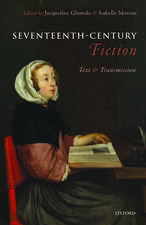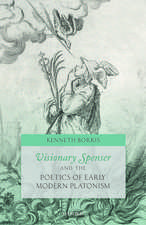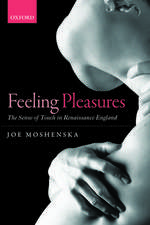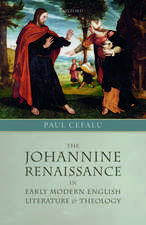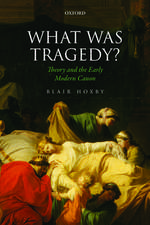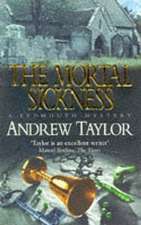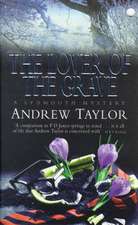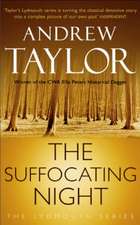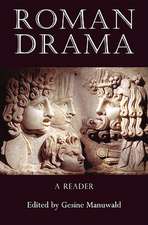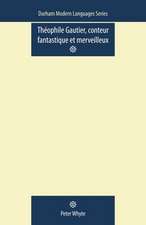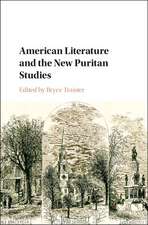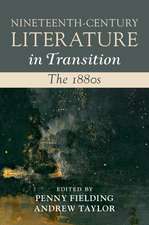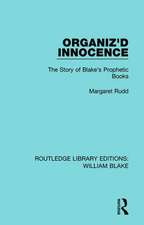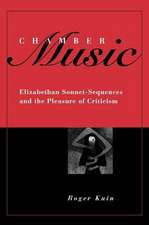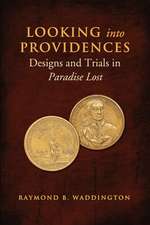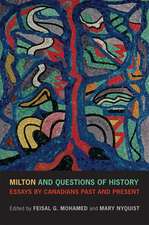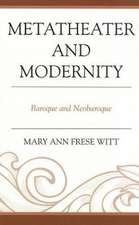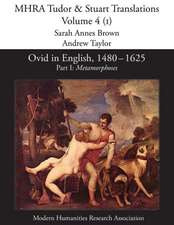Baroque Latinity: Studies in the Neo-Latin Literature of the European Baroque: Bloomsbury Neo-Latin Series: Studies in Early Modern Latin
Editat de Jacqueline Glomski, Dr. Gesine Manuwald, Andrew Tayloren Limba Engleză Hardback – 4 oct 2023
Preț: 539.49 lei
Preț vechi: 773.49 lei
-30% Nou
Puncte Express: 809
Preț estimativ în valută:
103.23€ • 108.28$ • 85.94£
103.23€ • 108.28$ • 85.94£
Carte tipărită la comandă
Livrare economică 01-15 aprilie
Preluare comenzi: 021 569.72.76
Specificații
ISBN-13: 9781350323438
ISBN-10: 1350323438
Pagini: 224
Dimensiuni: 156 x 234 x 25 mm
Greutate: 0.49 kg
Editura: Bloomsbury Publishing
Colecția Bloomsbury Academic
Seria Bloomsbury Neo-Latin Series: Studies in Early Modern Latin
Locul publicării:London, United Kingdom
ISBN-10: 1350323438
Pagini: 224
Dimensiuni: 156 x 234 x 25 mm
Greutate: 0.49 kg
Editura: Bloomsbury Publishing
Colecția Bloomsbury Academic
Seria Bloomsbury Neo-Latin Series: Studies in Early Modern Latin
Locul publicării:London, United Kingdom
Caracteristici
Wide range of genres considered including satire, fiction, religious writing, stylistics and poetics, music, prose and verse, and prosimetrum
Notă biografică
Jacqueline Glomski is Honorary Senior Research Fellow at University College London, UK, Vice-President of the Society for Neo-Latin Studies (SNLS), and a fellow of the Royal Historical Society. She has co-edited the collected volumes Seventeenth-Century Libraries: Problems and Perspectives (forthcoming), Seventeenth-Century Fiction: Text and Transmission (2016), and Acta Conventus Neo-Latini Monasteriensis: Proceedings of the Fifteenth International Congress of Neo-Latin Studies (2015).Andrew Taylor is Senior Lecturer, Fellow and Director of Studies in English at Churchill College, University of Cambridge, UK. He has published widely on Renaissance literature and has edited Neo-Latin and Translation in the Renaissance (2014), The Early Modern Cultures of Neo-Latin Drama (2013), and Neo-Latin and the Pastoral (2006), the latter two both with Philip Ford.Gesine Manuwald is Professor of Latin at University College London, UK, and President of the Society for Neo-Latin Studies (SNLS). She has published a number of articles on early modern Latin literature and edited the collected volume Neo-Latin Poetry in the British Isles (Bloomsbury, 2012) with Luke Houghton.
Cuprins
List of contributorsPreface1 Introduction (Gesine Manuwald, UCL, UK and Andrew Taylor, Churchill College, Cambridge, UK)2 The sixteenth century's revolution in rhetoric and its impact on the Baroque (Lucy R. Nicholas, Warburg Institute, UK)3 The Greekness of Neo-Latin wit: Hermogenes and ingenuity in Julius Caesar Scaliger's Poetices libri septem (Javiera Lorenzini Raty, KCL, UK)4 The triumph of the saint: St Casimir Jagiellon and the militant motifs in Baroque hagiographical poetry (Patryk Ryczkowski, Universität Innsbruck, Austria)5 Innovation and fusion: Sarbiewski's theory of Baroque literary style (Tomas Riklius, Vilnius University, Lithuania)6 Christ's blood or Mary's milk? 'Clarus Bonarscius', Baroque piety and English Protestant outrage (Alison Shell, UCL, UK)7 An example of Baroque Latinity through the inclusion of ancient literary models into modern thought: Claude-Barthélemy Morisot's Peruviana (1644) (Valérie Boutrois-Wampfler, University of Reims Champagne-Ardenne, France)8 Maffeo Barberini's poems for the Farnese family in early Baroque Rome (Stephen J. Harrison, University of Oxford, UK)9 Mannerisms in Latin Baroque poetry by Paul Fleming (1609-40) and Georg Gloger (1603-31) (Beate Hintzen, Universität Bonn, Germany)10 What makes a Neo-Latin tragedy Baroque? (Jan Bloemendal, Royal Netherlands Academy/Huygens Institute, Netherlands and James Parente, University of Minnesota, USA)11 Asses at the lyre: Latin as musical language and the benefits of exclusion (Eric Bianchi, Fordham University, USA)12 Latin motet texts in seventeenth-century Rome and the Exercitia spiritualia of St Ignatius of Loyola (Adrian Horsewood, Royal Birmingham Conservatoire, UK)Index
Recenzii
Is it a style, a period, a way of expressing grandeur or channeling emotions? Baroque Latinity tackles the complex question of what it is that makes a Neo-Latin text 'baroque'. This will no doubt become key reading for anyone else interested in Neo-Latin writings from the late sixteenth to the early eighteenth century.


